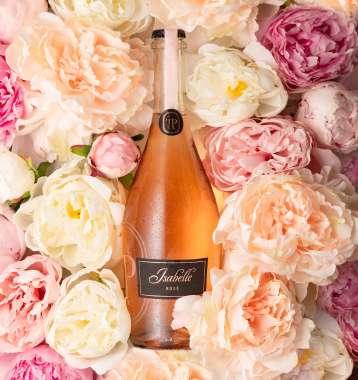
2 minute read
CHEERS
CELEBRATE ALL THE SPECIAL DAYS COMING UP WITH AWARD-WINNING GINS, OLD VINE VINTAGES AND MORE
by Renate Engelbrecht Images: Supplied
Advertisement
April and May boast various special occasions worth celebrating, including Easter, World Heritage Day, World Earth Day, Freedom Day, Mother’s Day, Worker’s Day and Africa Day!
Terre Paisible Competition
In the organic winemaking process, no artificial fertilisers, herbicides, pesticides or fungicides are allowed in the production of the grapes, and the addition of additives in the cellar is restricted. Biodynamic farming uses no synthetic fertilisers or pesticides and works to achieve soil health using compost, animal and green manures, diverse crop rotations and the incorporation of livestock into the process.
Ladybird Vineyards’ winemaker, Francois van Zyl says that organic and biodynamic wines are healthier because there are fewer additions to the wine and the chemical footprint in the production of organic wines is smaller.
BOTTLED BETTER?
Why, then - apart from availability - are organic wines not as widely consumed as their counterparts? Van Zyl says that any well-made wine with great ageing potential can be a great wine, regardless of whether it was produced organically or by conventional winemaking. “Some of the best and most highly prized wines in the world are organic or biodynamic and are produced that way. Domaine de la Romanée-Conti – the most expensive and highest prized wine in Burgundy is biodynamic and so are Chateau Palmer’s [wines].”
So, is organic better? “An organic certification for wine only advises the consumer of the farming and winemaking practices and isn’t a definition of quality,” says van Zyl. “You can get very good organic wines and also very good conventional wines. Poor quality wines produced in both methods are also possible.”
Reyneke says that the biggest misconception consumers have around organic and biodynamic wines is that they are inferior, don’t age as well and are overpriced. “Modern agriculture is one of the five biggest contributors to global warming and biodiversity loss. Organic, biodynamic and regenerative agriculture can play a significant role in slowing things down, or even reversing the process,” he says.
Raise a glass of organic or biodynamic wine then, and help save the planet!

1 www.reyenekewines.co.za
1 www.ladybirdvineyards.co.za
Q @reynekewines
Q @ladybirdvineyards
Be sure to stock up your wine cabinet with some wines from Terre Paisible, especially their Les Dames de’87 – an old vine Sauvignon Blanc – or their beautiful bottle of Isabelle Rosé. The latter is sure to fit in well with any pastel-themed Easter table!

Terre Paisible is giving away a customer voucher to the value of R2000 and you might just be the lucky winner. Scan this QR code to enter the competition.
REJOICE, THERE’S GIN!
Indlovu Gin
Indlovu Gin - made in South Africa, designed by elephants - has become a worldwide sensation, having recently won an international Gold award at the prestigious New York 50 Best Gin Awards. That’s in addition to the Double Gold it received at the South African craft Gin Awards.
Price Less than R500 per bottle
ALCOHOL-FREE OPTIONS
Non-alcoholic drinks are also a popular choice these days, with spirits like the alcoholfree Ginologist London Dry Botanicals (R299.99) and Abstinence Cape Citrus Non-Alcoholic Spirit (R259.99) being top choices.
Imagin Classic Gin

Imagin Classic Gin recently took the top spot as the South African winner for the Classic Gin Category at the World Gin Awards 2023. It’s a handcrafted, double distilled gin and one of the most affordable in its class.
Price R159












